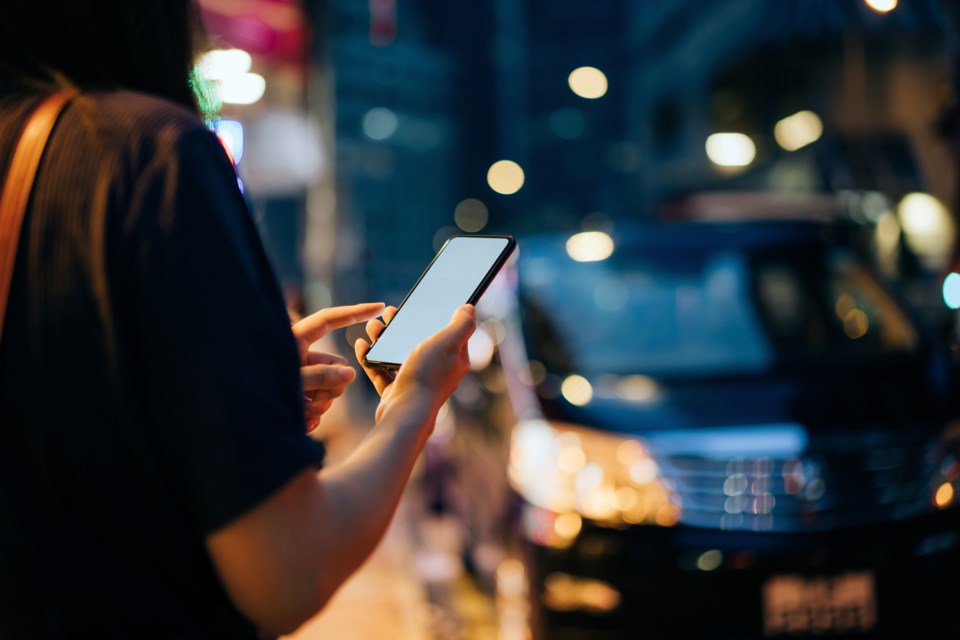Locals say prices for ride-sharing services were as much as three times higher than usual Monday (Jan. 22) due to the complete Metro Â鶹´«Ã½Ó³»bus strike.
Starting at 3 a.m today, CUPE 4500 -- the union representing transit supervisors, including bus and mechanics -- implemented a full strike, shutting down all of the bus routes operated by its employer, Coast Mountain Bus Company (CMBC).
The union says CMBC isn't paying supervisors wages commensurate with other transit employees in comparable jobs and that strike action was a last resort.
But many locals say they couldn't find an affordable way to get to work without a bus service running near them.
Several people took to X, formerly Twitter, to share their ride-hailing grievances with their other locals, with many of them sharing exorbitant prices of typically cheap commutes.
Rod Mickleburgh said he was looking at Uber prices around 8 a.m. to get from Main and 16th Avenue to the Commercial-Broadway SkyTrain station. While this would typically cost $3.15 on the 99 B-Line bus, the ride-hailing app was showing prices for just under $30.
"An Uber from the same intersection to UBC was $50 for a shared ride and $56 by yourself," he added.
Another local shared a screenshot of price options they were shown via Uber for a trip that typically costs then around $11; the cheapest option for a solo trip was $33.75 while the shared one was $27.96.
Uber and Lyft cap surge pricing during complete Metro Â鶹´«Ã½Ó³»bus strike
Spokesperson Keerthana Rang told V.I.A. that Uber has "capped surge pricing" and also "offered additional incentives to drivers to encourage them to complete more trips" during the transit strike.
The influx of drivers should mean there are more rides to go around until the demand/supply balance comes back into equilibrium.
"For example, this morning from 7 [to] 8 a.m., the number of active drivers increased more than 70 per cent over the same hour last week. However, it is not reasonable to expect Uber to fill in the massive gap left by a transit strike," she said.
"To further save on price, we encourage riders to try the Group Ride feature, to carpool a ride and fare with a friend, or UberX Share where the rider saves on price as Uber will try to match another rider with you to carpool the ride."
Rang said surge pricing happens when people request more rides than Uber can immediately fill with drivers. Surge pricing is automatically activated by software that detects an imbalance in rider demand and driver availability. The software is also hyper-local, meaning people can see real-time data about pricing in specific places across the region.
"With upfront fares, riders see the price before they request the ride so they know how much they’ll pay and a message will be displayed such as 'Fares are higher due to increased demand' before the rider chooses to request a trip. The surge amount is added to the driver fare," she explained.
"Additionally, when exceptional circumstances warrant it—such as in major emergencies that impact public safety—our teams will assess the situation and manually override dynamic pricing in the area."
Lyft also told V.I.A. in an emailed statement that it has implemented a "Prime Time cap today" on pricing in response to the bus and SeaBus strike.
Other options for commuters during transit strike
Black Top & Checker Cabs Operations Manager Abdul Rahman said the company is experiencing significantly more calls than usual and it has impacted operations since early this morning.
While service is busiest during rush hour, customers should expect delays throughout the day.
"For now, give us a heads up if you are booking with Black Top," he told V.I.A. "We have been flooded with calls."
Ride-hailing and taxi companies aren't the only bus transit alternatives that have been impacted by the strike.
Evo Car Share said it saw "an immediate 30 per cent increase in trips" early Monday morning. Additionally, the company saw a 50 per cent higher than usual sign-up rate for new memberships over the past few days.
"To help people get where they need to go, Evo is responding to higher demand by relocating Evos near SkyTrain stations," the company said in an emailed statement to V.I.A.
, a round-trip care share, is also available at Surrey Central and King George Skytrain stations. In this service, drivers can book a car for an hour or longer up to 30 days in advance allowing them to pick up and drop off the vehicle in the designated Evo Return Zone.
Evo added that members can book one of its 2,300 cars 30 minutes in advance through the app. If they are unable to find a car nearby, they can set the radar to notify them when one becomes available in the specified zone.



